Off-Camera With Dua Saleh of 'Sex Education' and Liv Hewson of 'Yellowjackets'
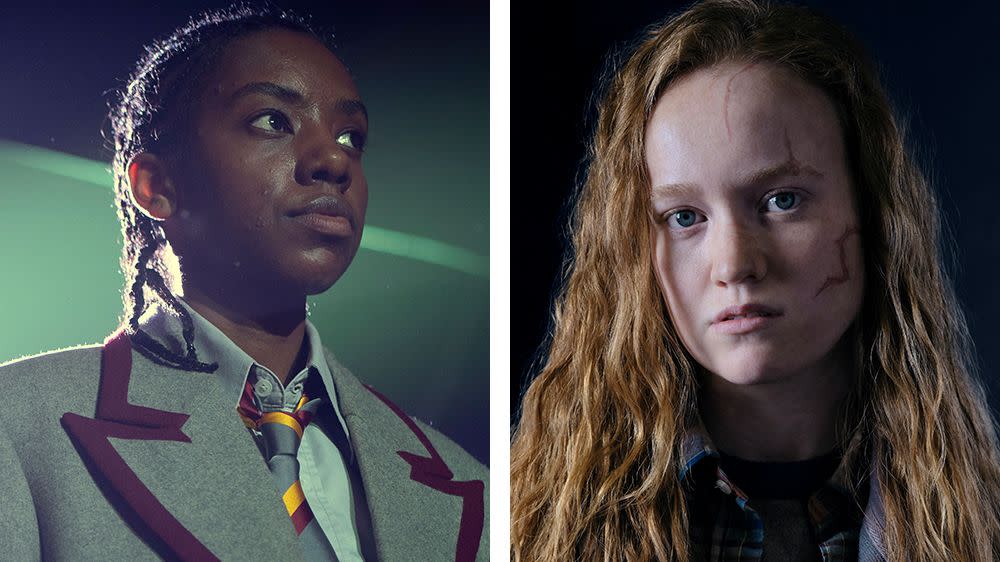
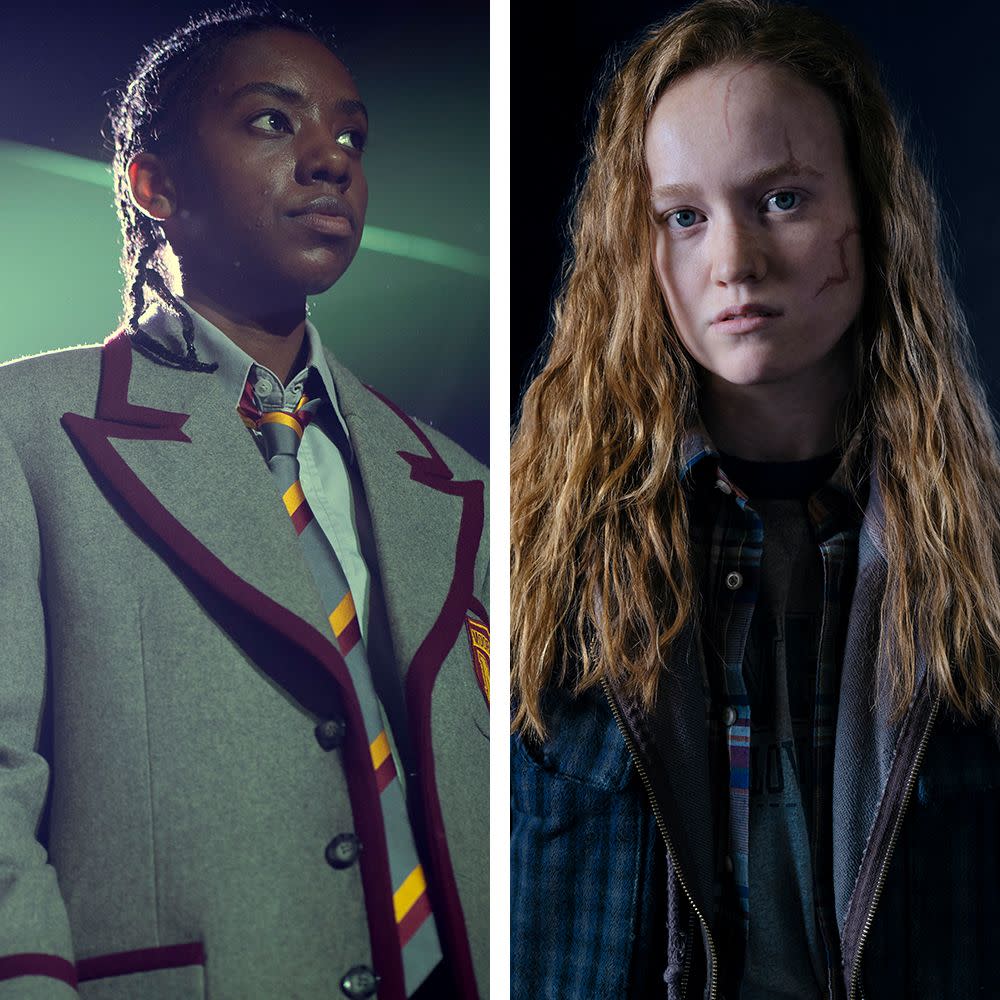
Dua Saleh and Liv Hewson’s shows couldn’t be more different. Saleh, an actor-musician, played Cal in Netflix’s Sex Education, a heartwarming British teen comedy-drama about navigating love. On the Showtime series Yellowjackets, Hewson plays Van, a member of a New Jersey high school soccer team that slowly descends into madness after getting stranded in the wilderness.
As part of Affirmed, ELLE’s exploration of gender-affirming care, the nonbinary actors met for the first time to talk about what they do have in common: advocating for LGBTQ stories, creating safe work environments on set, and navigating the pressures of Hollywood. Below, their exclusive conversation.
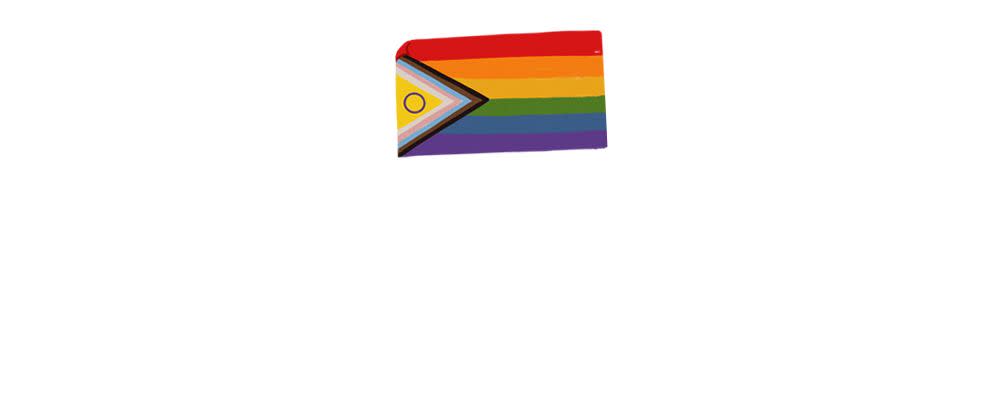
On gender performance and speaking up on set
Liv Hewson: When I was nine, I played Perseus, who was a male “hero,” in a school play. I drew a mustache on myself with eyeliner, and I was playing this guy, and a lot of things came together at once. I knew immediately I wanted to be an actor. Tangled up in that was gender performance or gender play. It was like, this is a space in which I can play with these signifiers of gender, or I can perform them and try them on and [find myself] inside them. It was always about expression of self and story and gender all at the same time.
Dua Saleh: I was a musician first, and I’m an indie artist, and I was one of the more recognizable musicians that was publicly nonbinary at the time. Sex Education reached out to me and asked me to audition for the role of Cal. I wasn’t really too familiar with acting, so it was really nerve-racking. I wanted to do it, because it was a historical shift in culture, and I thought it would be really interesting to be a part of.
Hewson: What was that environment like for you? Did you feel like you were in the driver’s seat for the stuff with Cal?
Saleh: I feel like Cal is more expressive in a way that’s accessible to youth. They’re literally a child trying to figure out what their identity is, and they were actually more rooted in their identity than I was when I was a kid. How does your identity come into play in those environments?
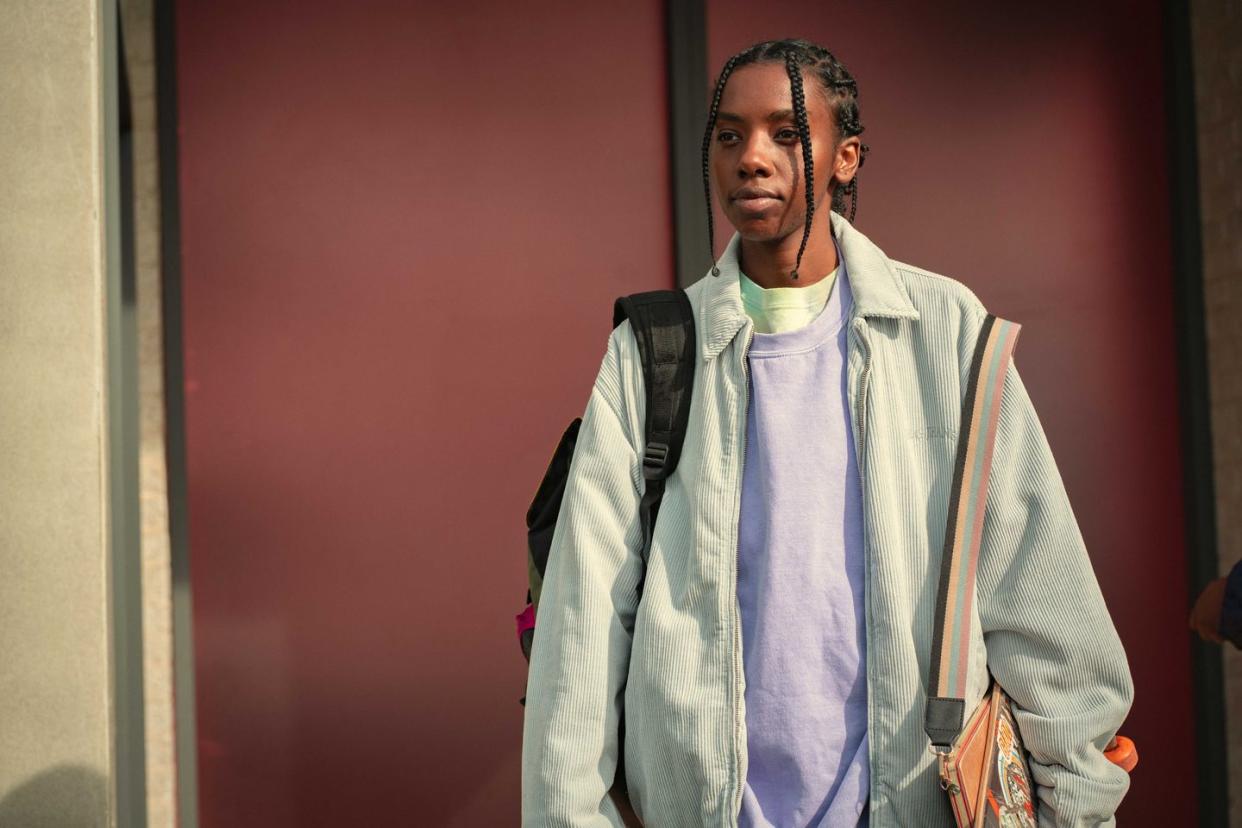
Hewson: Yellowjackets is such a cool environment in so many ways. I love that it’s a big ensemble, and I love how much freedom I feel to make decisions about Van and who she is. I know I can ask questions and make suggestions, and that’s very empowering. As an actor, I’m always trying to queer up whatever environment I’m in. It’s nice when I don’t feel as though that’s as much of a struggle. I know what it is to see plays or films or read books and to notice queer signifiers in them and wonder whether it was intentional or not. I see so much of my job as being inside of the house now; I get to make decisions and do things on purpose.
Saleh: There was a time where Cal wasn’t going to say that they were queer or make mention of queerness as a specific thing. Transness was okay, but queerness was something that was…I’m not sure what it was. But I forced them to add it in there.
Hewson: As you get older and more confident in yourself, it’s better to address it immediately and clearly. I fundamentally trust that I’m right. My instincts are good, I’m smart, I’m good at this. I have something valuable to contribute, and I want to talk about it, and isn’t that why you hired me?
Yellowjackets really lets me get away with murder so much of the time. One of my favorite examples from season 2 is when Van and Taissa are talking about tying themselves together to sleep in the attic, and at the end of the scene, Van says, “Maybe I just want you to tie me up. Do you ever think about that?” That was me. I just wanted to make a gay sex joke. But they let me do it.
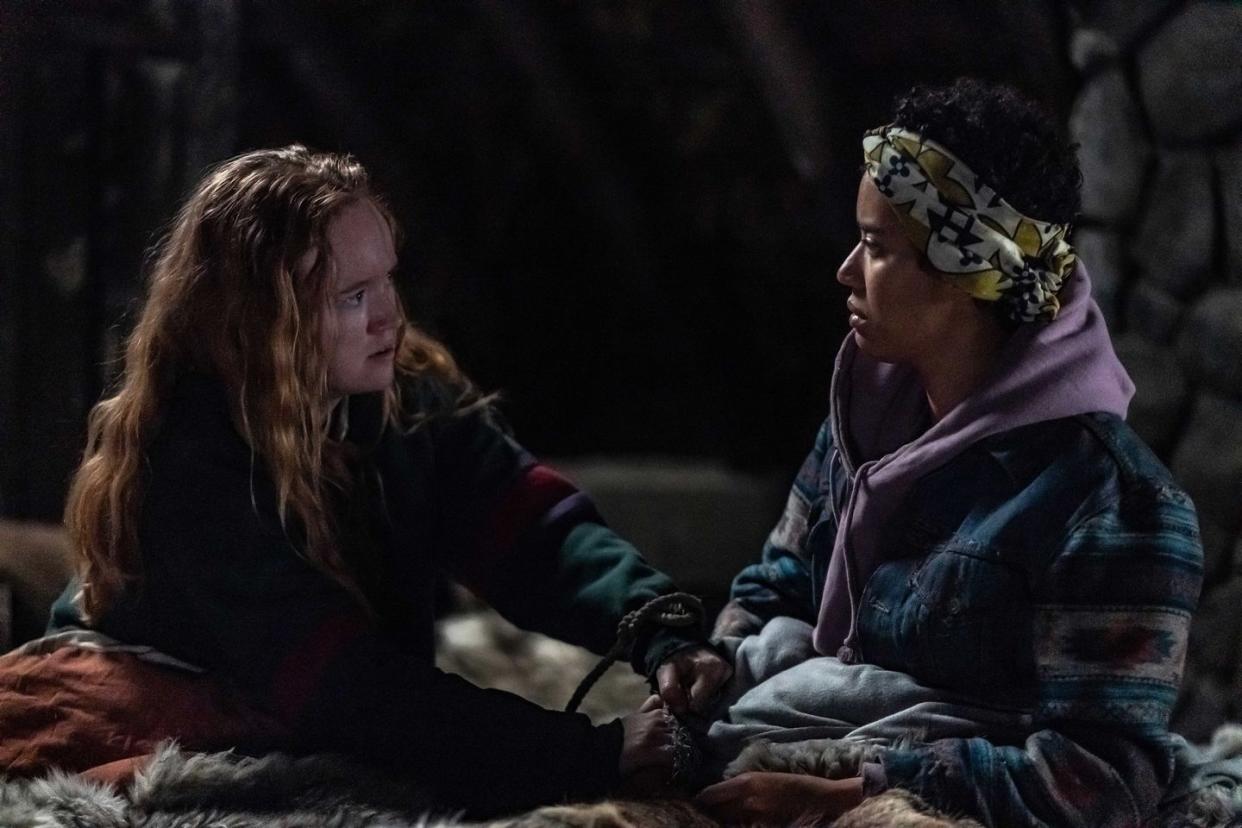
Saleh: And I’m glad you did. That show is really scary. Both of the shows I’ve watched you in are really dark. Do you think you’re drawn to horror because of queerness or transness?
Hewson: I sort of think so. I want to play in spaces that are dark and twisty and difficult and exploratory. I suspect a lot of that is tied up not just with exploration of genre but also with exploration of character, which for me is tied up in exploration of queerness and transness. It’s an intuitive and comfortable space for me.
On self-reflection and seeing yourself on-screen
Hewson: If I go back and watch something I’m in at age 20, I can tell that it’s me at 20. It’s a little unsettling, because I did a bit of a re-closeting of myself when I started working as an actor and came out publicly a few years into the job. If I watch my earlier work now, I can see myself carrying that, and there’s a sort of wistfulness there for me. It’s not sadness, exactly. I have a lot of compassion for that person, but I wouldn’t say it’s comfortable.
Saleh: I don’t really like watching myself back, but maybe that’s me trying to get away from my character. I don’t really listen to my music. Maybe I have some weirdness with having to inspect myself, and maybe that’s a part of dysphoria.
Hewson: I feel a newfound settledness in who I am, so if I come across an image of myself before that, it’s like looking in a funhouse mirror. I can recognize that person, but it’s like they’re very far away—or I can see the person I am now underneath, but they haven’t quite arrived yet. There’s a very particular dissonance I find looking at images of myself done-up from a few years ago at events or on a red carpet. For a long time, I didn’t know how to be in spaces like that and be myself. When I was younger, and particularly before I was out, I was making a lot of decisions about myself based on: this is the most I can hope for. And that’s not how I feel anymore at all. So there is a real strangeness being confronted with an image of myself that doesn’t think they can hope too much.
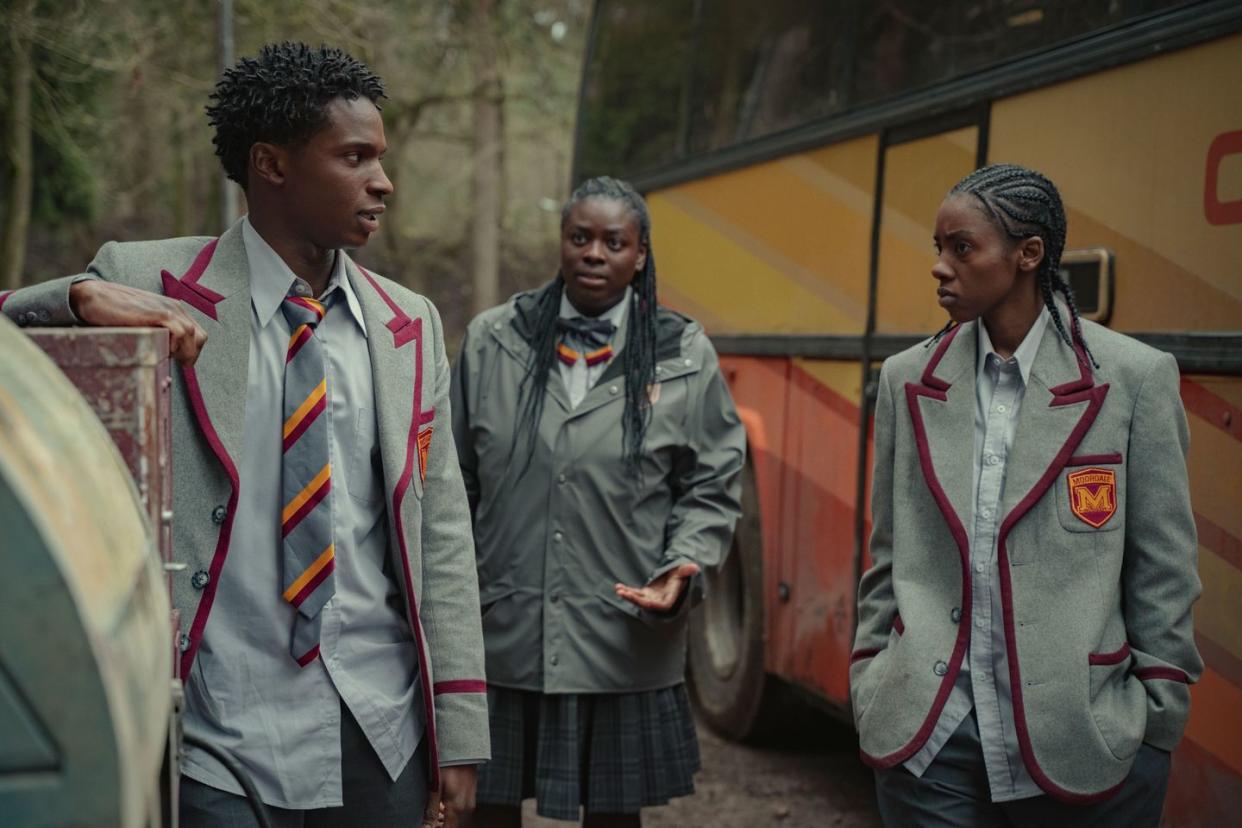
Saleh: You’re Australian, but you’re based in L.A., like me. Do you feel like you have to mold yourself to the environment here? I feel like it’s altered the way that I present myself, because there are sociocultural, sociopolitical differences that manifest in material ways that benefit me if I portray myself in ways that are easier to digest.
Hewson: It’s definitely a pull you notice: I can feel that if I behaved in a certain way, then I would be easier to digest, or things would be a lot smoother for me. It is quite visceral. I’ve really been able to shake that off in the last few years. Having surgery was a big part of it for me. I knew it was what I needed to do in order to be physically at home within myself and be out the other side of the pain I felt about my body and gender. I spent so much time talking in circles because of rules I had constructed around what that would mean for my life and career. But not only did having top surgery not negatively affect my work, but it was actually incredibly beneficial in every way. If I’m more comfortable and more confident, I’m a better actor. It can be very easy in an industry like this, or in a city like L.A., to set traps for yourself around what it is that you need to do in order to survive when, really, the only thing you need to do in order to survive is to take care of yourself.
On prioritizing queer people behind the scenes
Hewson: It’s important to have queer people in visible positions, but it’s so important to have queer people in invisible positions, like queer writers and producers and intimacy coordinators and directors and publicists and lawyers. Having queer people involved is where the most tangible active change can happen in an industry. If we’re using media and storytelling as a tool to tangibly further the rights of queer people and the daily experience of queer people, it’s all well and good to have someone like me in the position I’m in, but it’s not something any of us can do by ourselves.
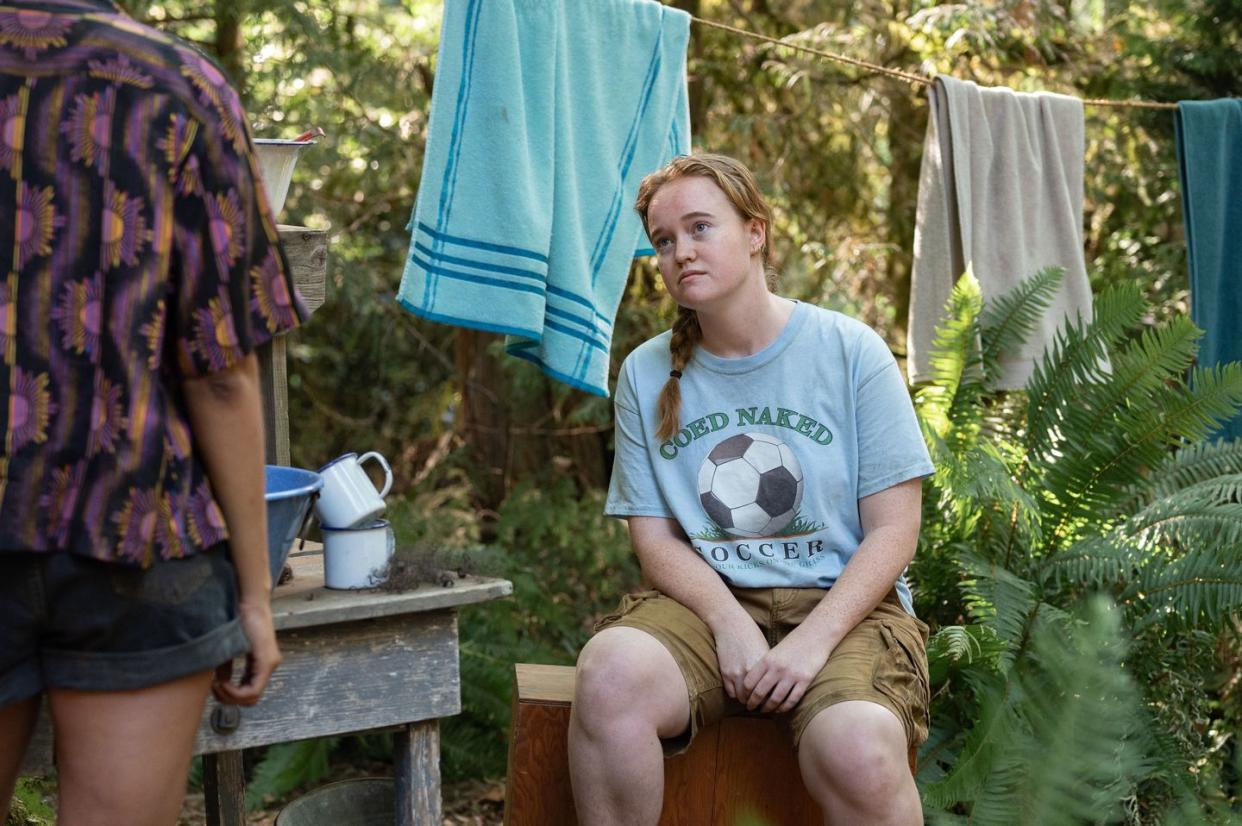
Saleh: Having a trans intimacy coordinator on Sex Education was really relieving. I definitely forced them to give me that intimacy coordinator, and so much of the comfort I got was from him. He was forthright and, maybe because he’s also an actor, knew what was borderline inappropriate or what would be soothing. He helped me process some emotions I was having to deal with on set, something that wasn’t really even related to intimacy. Had it not been for him, I think I would’ve been a bit more peeved on set, just a bit more irritable. So it’s really helpful to have people there; it’s a better environment for everyone.

On redefining gender-affirming care
Hewson: There are many kinds of gender-affirming care that cis people access all the time [with] no issues. But on a cultural level, when care is gender-specific to trans people, it invites a level of scrutiny that presumes the authority of this cis population to decide what is and isn’t appropriate. In terms of what’s affirming for me and what care means to me outside of that authority, I think care is something queer and trans people always have given to each other, because we’ve had to. That ongoing practice is life-saving. It can mean crowdfunding or finding housing for each other. It can mean inviting everybody over for a meal or doing wellness checks on a friend. Gender-affirming care is a lesson in how you think about yourself and the ways in which you deserve care and the ways in which you deserve affirmation. It’s a lesson in how you think about the kind of community you want to create or the world you want to live in. Gender-affirming care matters so much to me. It’s, in many ways, at the center of my life.
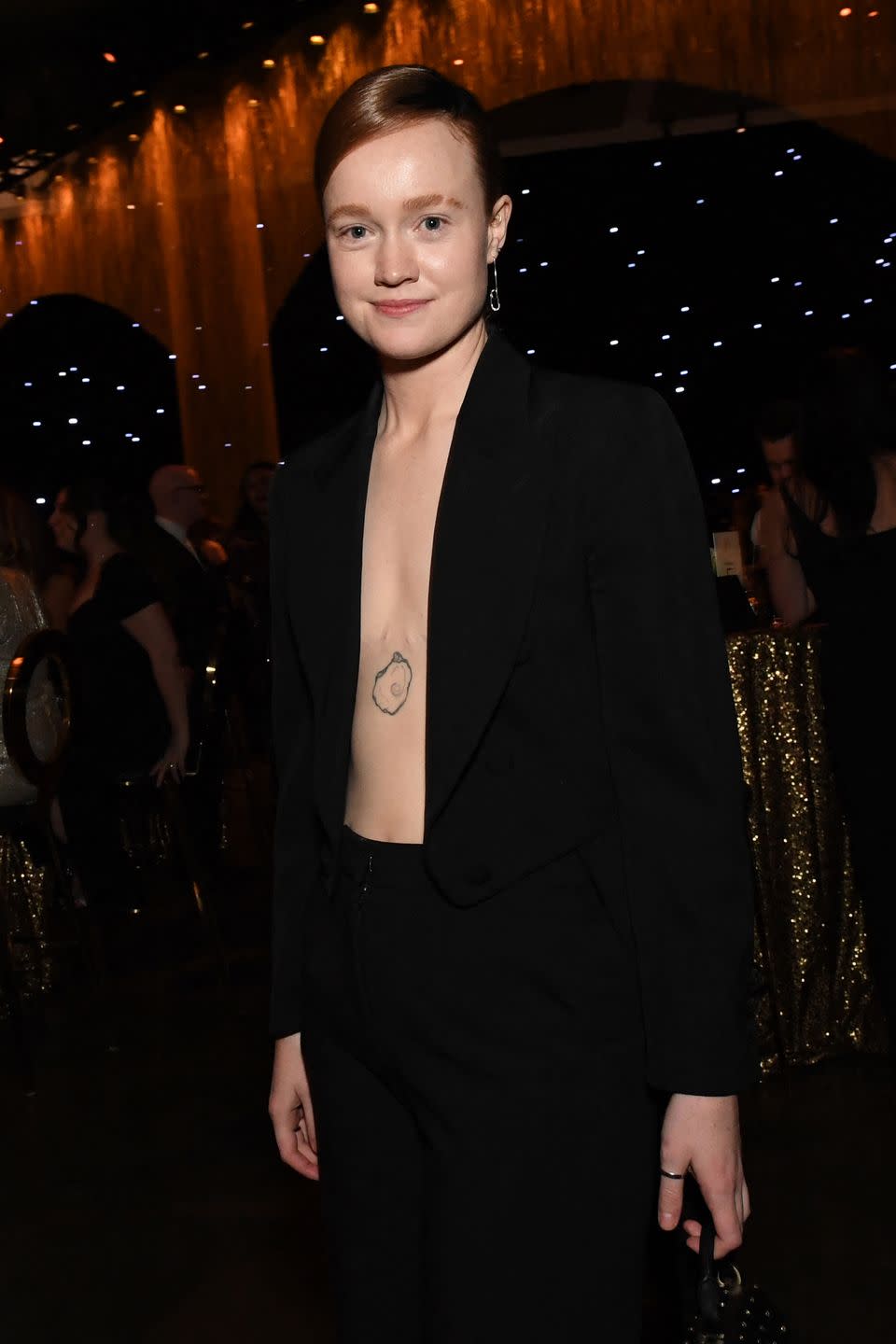
Saleh: That really resonates with me. It’s just so outrageously pervasive how much they’re trying to kill us. Gender-affirming care is actually life-saving. I’m just aghast at the lack of respect for trans youth and trans people. The assaults on trans bodies—trans women, Black trans women, trans men, trans youth who are being bullied in school as a result of the cultural shift toward hate and antagonism because of the book bans, because of misgendering in schools, because of lack of health care access.
Hewson: Gender-affirming care is a care for and a respect of and a love of trans people as they are and as they have a right to be, moving through the world the same as anyone else. Care is so urgently needed by so many, especially right now.
On the intersection of performance and gender-affirming care
Hewson: It’s expression, right? That’s the common vector. And in order to be expressive, you have to be comfortable with who you are. When I think of performing and when I think of gender-affirming care, the role they’ve both had in my life, I think of giving myself permission to reach out and step forward.
Saleh: I see it in the writing of Sex Education season 4. We had a trans writer—as a queer actor and a trans person, I’m really spoiled in that regard—who wrote about the experience of wanting top surgery. Knowing that there is a political assertion toward anti-trans hate within the U.K., even from the prime minister, and having it written [into the show] that gender-affirming care is life-saving and alters the minds of youth in a way that isn’t performative but actually profound, that was really amazing to be a part of. Being trans and queer actors within the larger media shifts the way the public is able to understand that trans people are normal.
Hewson: We’ve just been hanging out the whole time, and it’s been great. Honestly, it’s been really fun, and suddenly, it’s this big issue for you, which now we have to stop and fix and talk about. It’s bizarre.
Saleh: It’s ridiculous. Also, I’m thinking about how cis women get gender-affirming care by getting breast augmentation to make their breasts look bigger, so they can fit within the very rigid and dark understanding of femininity within a larger understanding of what womanhood is. We’re all trying our hardest to just exist.
Hewson: How many cis men in their fifties are on testosterone right now?
Saleh: But you don’t know you’re doing that because it’s the only way you feel that you might fit the standard of masculinity or femininity in the way you perceive it.
Hewson: Your world expands so much when you allow yourself to think about what gender means for you, what it means for how you see other people, what it means for how you see the world. It’s not just beneficial to trans people; it’s beneficial for you as well. It’s a more just and open world. Sometimes it’s like, I can see it. We’re so close. Everybody, please, just relax. I promise we’re going somewhere nice.
This conversation has been edited and condensed for clarity. Top photo courtesy of Netflix and Paramount.

This story is part of ELLE’s Affirmed series helmed by guest editor Tommy Dorfman that explores gender-affirming care in all its many forms. All stories were done with support from GLAAD, and all illustrations were done by Anshika Khullar, an Indian, nonbinary transgender artist.
You Might Also Like
